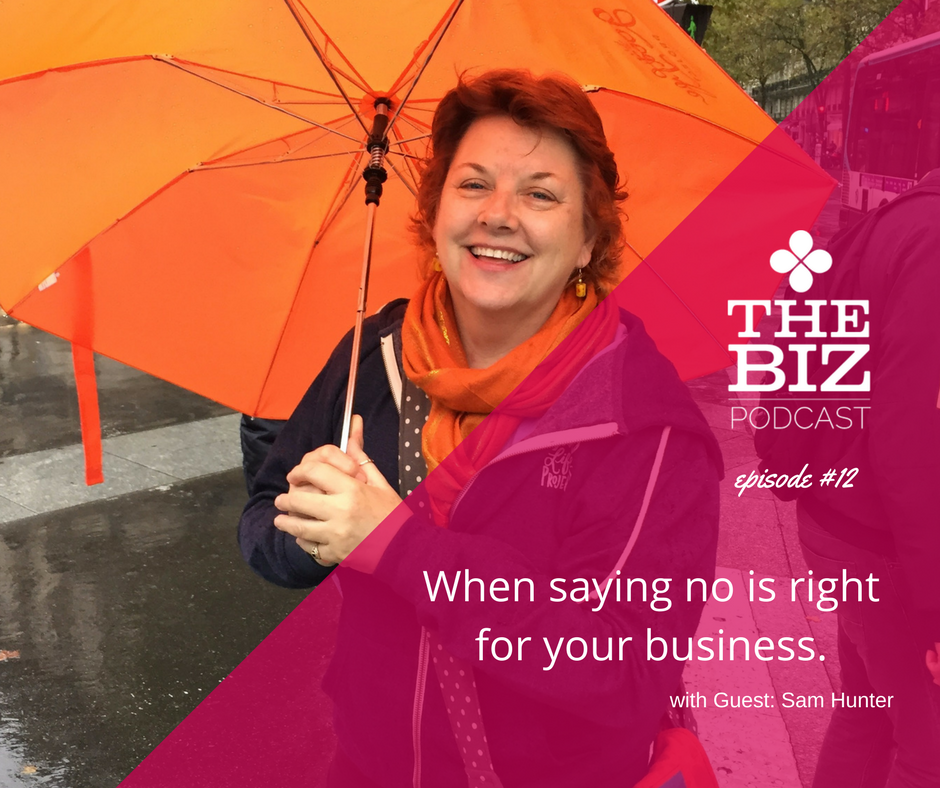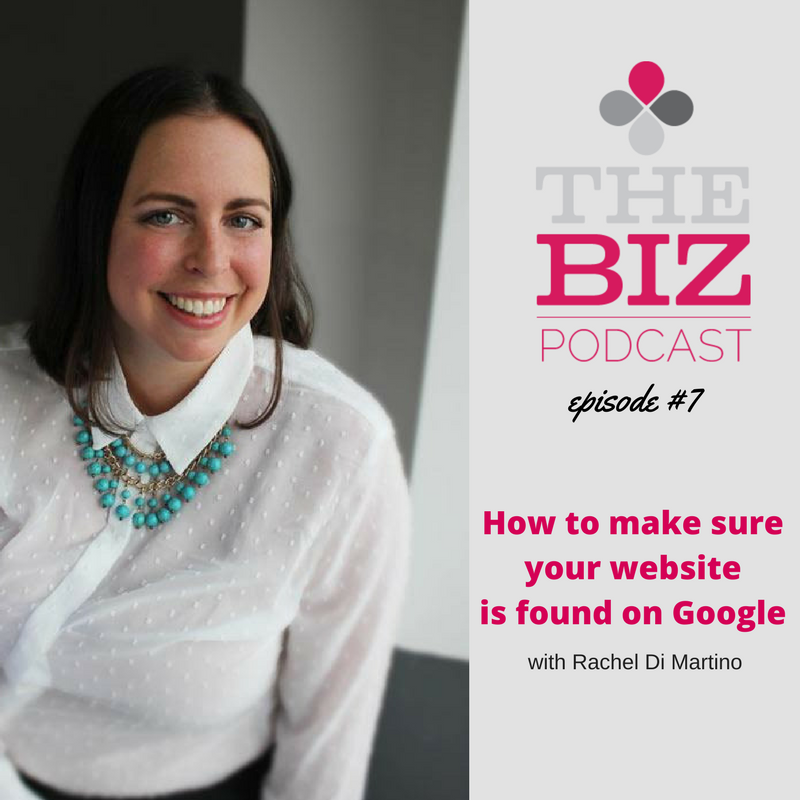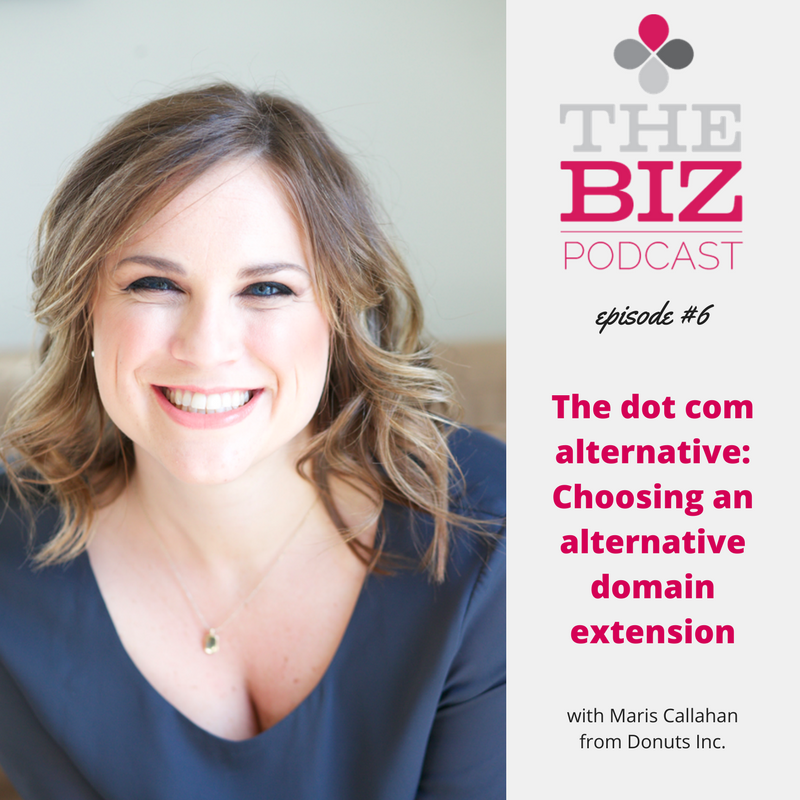Are you doing what you love? Does your business make you happy? If it isn’t then it may be time to change the way you run your business.
Today I am talking with Sam Hunter, a quilt pattern designer for the quilting industry. Quilting is a $4 billion dollar industry in the United States! Despite being associated as an activity for the elderly, quilting is a huge industry and Sam has capitalized on this with her designs. Sam joins me to discuss her experiences as a business owner and choosing the right projects for you. It’s all about doing what you want to be doing as opposed to doing what others (society) think you should be doing.
Why you should do what you love
Sam designs what she is passionate about because she believes the end result will be better. If a fabric company approaches her with a design and she tries to do it, i.e. table runners, she finds they don’t sell well. The fact that she isn’t committed in her heart to that work means they don’t sell well, so she only creates what turns her creativity on.
If you create a business with a lot of “poop sandwiches,” as writer Elizabeth Gilbert describes it, then it won’t sell well or do well because you are not going to give it your all; because your heart is not into it.
When you love what you do, you do it better
It’s easier to promote, sell and do the day-to-day when you love what you do! With every creative job there is the behind the scenes stuff that you also need to do, i.e. a website, social media, etc. and you need to get good at it or hire out for it, but in order to do this you must love and believe in what you do. You need to know that doing what you love means creating systems and processes that allow you to focus on this.
After reading the book Essentialism – The Disciplined Pursuit of Less by Greg McKeown, Sam realized that when you’re in the business of doing your work, you are working on being more productive and efficient. Are you doing the right things in your business? Sometimes there are places in your business where you think “heck no,” but there are business reasons behind having to do whatever that thing is.
What is essential to your business?
In order to run a business that makes you happy, you need to protect your income stream, your body and your family and family relationships. Your body needs to come first in order to be able to do the rest.
Body and health
According to McKeown, our first asset is your body. Don’t work so hard that your body breaks down. Look at the decision processes for your business and think if it will stress you out, and if so, can you hire it out? Is it cost-effective? Does it support your health?
If you’re doing the wrong work your body will tell you through migraines, etc. It’s not all about having the time—it’s about whether or not it will exhaust you or cause you anxiety. If you are running at a level of busy that means you can’t maintain self-care then you will run out of steam. This doesn’t necessarily mean investing in yoga classes, but it could mean questioning what you are eating. Are you relying on take-out too often? Are there fruits and vegetables in your fridge?
Income stream
When it comes to your business tasks, you need to decide whether any of the things that must be done need to be done by you and if so can you hire that thing out. Outsourcing gives you back the time you need to do the things only you can do. You can outsource for graphic design, social media, bookkeeping, etc.
Family
It's simple - when was the last time you spent time with close friends and family - the people that nourish your soul?
Don’t do what you don’t want to do. Remember, just because you can do something, doesn’t mean you should. Another thing to think about is 'can you do your best work within the time allotted to you?' Doing it well doesn’t come with the hustle. Can you be proud of your work in this situation? Do work you love AND you’re proud of.
The fear of saying no
You can have a sustainable income by saying no because it gives you more room to say yes to the work you do want to do and that you’re good at. The polarization within our society that if you’re A then you’re not B… and if you’re A then you don’t like B… this isn’t true—there is room for all of us.
Just as there is room for other quilter designers there is a room for other people within your industry – only you can do what you do and everyone else can do the rest. Don’t play in the realm of scarcity. Believe there will always be people who like your work. If you play in the realm of scarcity, you will get scarcity.
Competition
When it comes to competition, be all that you can be, but swim in your own lane. Don’t look too much at others; keep them in mind, but don’t focus too much on them. Instead focus on yourself and what you do.
We will all have frustrating days, but love what you do. Sam loves the puzzle of what she does. She has her mission and system that keeps her on track, for example she doesn’t do kits because she doesn’t want to. By figuring out what she likes to do she stays on track and keeps her goals in mind. Just because you say no to something doesn’t mean it’s permanent… they can become possibilities down the road—if you want them to be. Your business is constantly evolving – just make sure it is the business you want and that everything happening in your business is for a reason.
Resources & Links
Sam Hunter's website: Hunter's Design Studio










